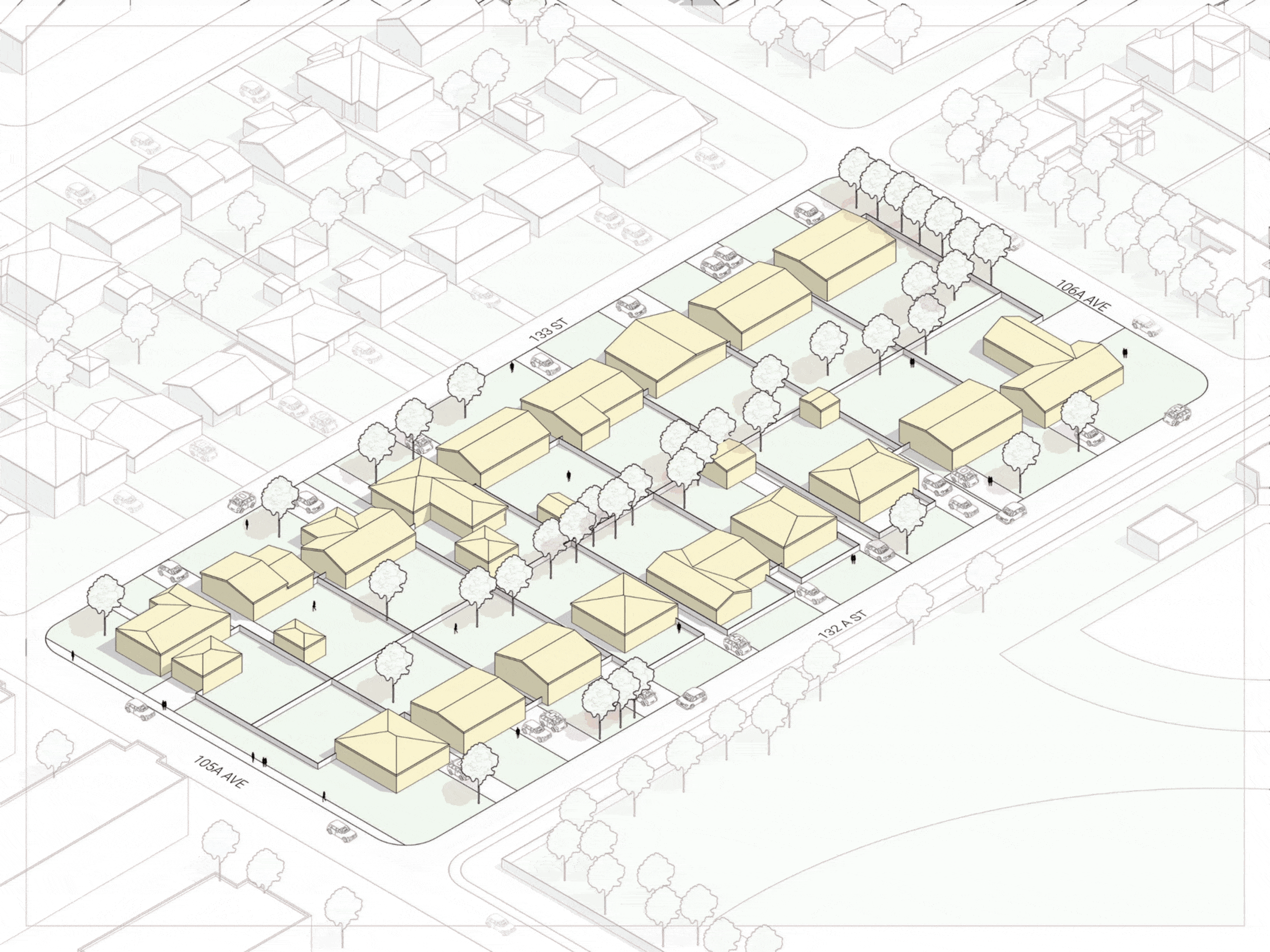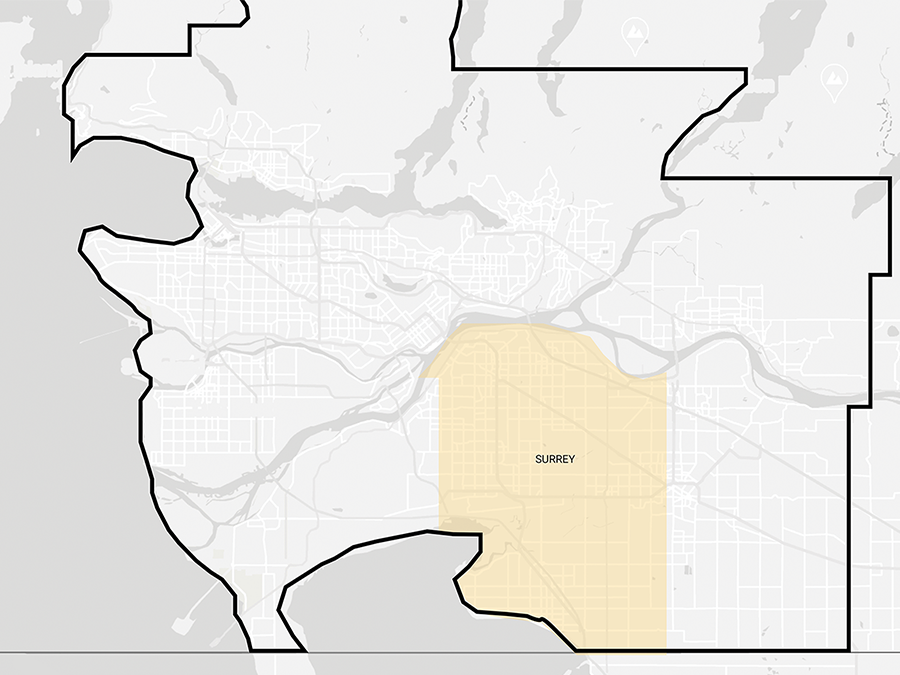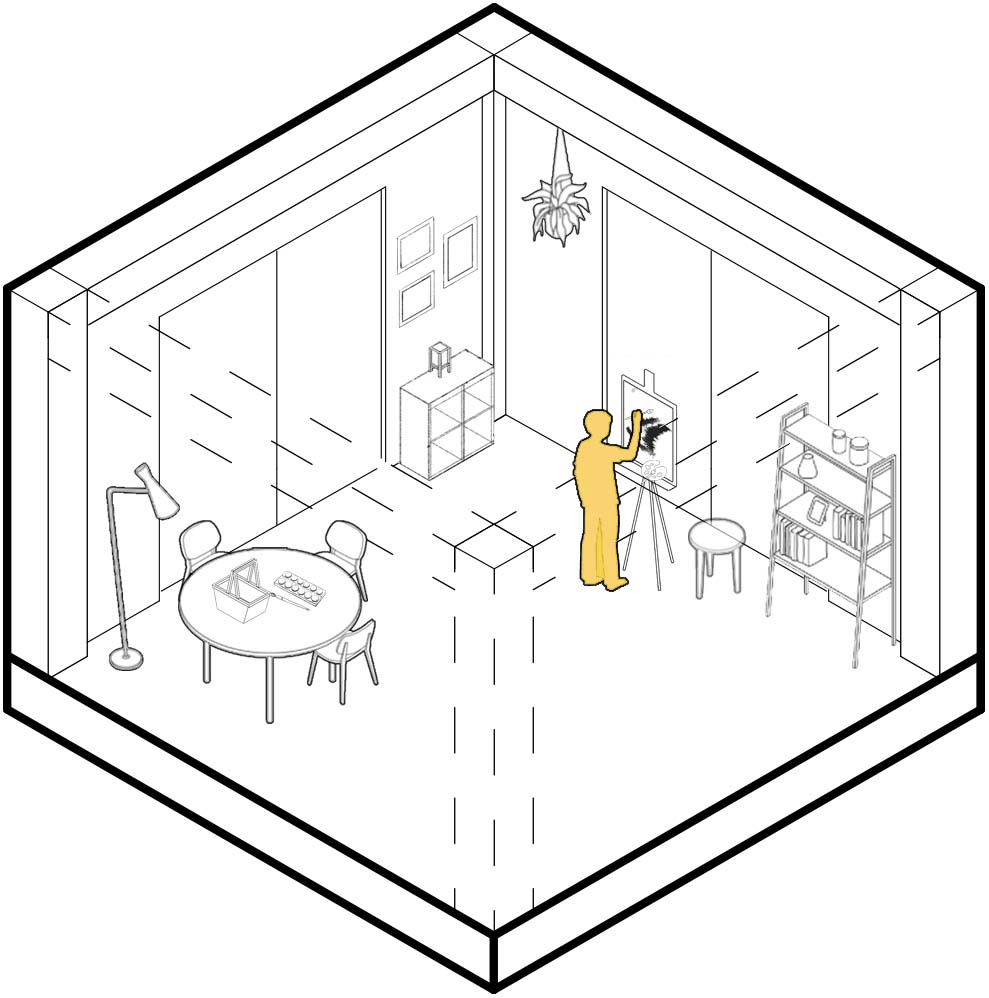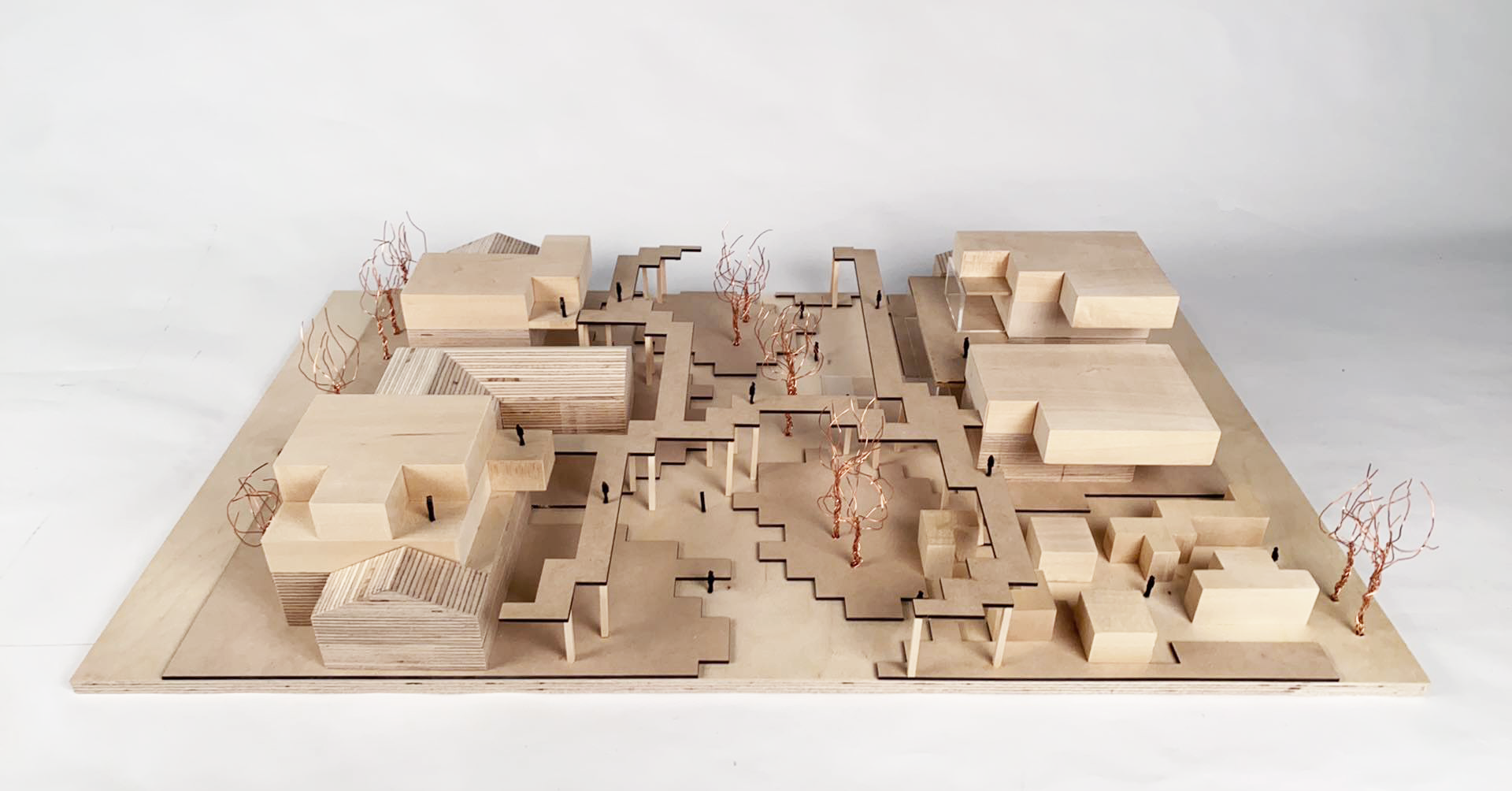Kristen Tsoukas, Patricia Diaz, Elena Teimouri
Pale Blue Dot:
Pale Blue Dot:
Suburbia Under Pressure: Re-imaging Social Contracts
In the 21st century, the meaning of family is ever evolving, and as a result, future dwellings should reflect this change. To re-imagine the social contracts of dwelling, we need to think of urban living as a system instead of individualistic plots of private property. Re-imagining Social Contracts is driven by the need to provide adaptive, flexible, and affordable spaces in Surrey, British Columbia, the largest growing municipality in Metro Vancouver. Surrey is rapidly changing from a suburban town made up of single-family homes to a dense urban city. For this proposal, a typical block was analyzed (that is zoned for a 20th-century idea of single-family housing) from Surrey. This typical block contains 18 houses, which would accommodate 75 people. In 30 years, it would need to accommodate 125 people. As a result, this proposal seeks to provide an affordable shared model of living that can easily sustain future densification and allow flexibility. The majority of the existing houses on-site were re-purposed, and a structural 4x4m² grid system that houses modular building blocks were imposed onto them. These modules re-negotiate our concept of domestic space into neutral, unassumed spaces, acting as canvases for the diverse members of each community. They break the walls of traditional homes through acts of re-purposing, adding, subtracting or merging. They can house people and be used for commercial, institutional, or user desires. This model ultimately allows the users to determine what these spaces can become, self-sustaining each community. This vision must be adopted at a larger scale as the population, and the need for affordable, suitable housing continues to grow.








